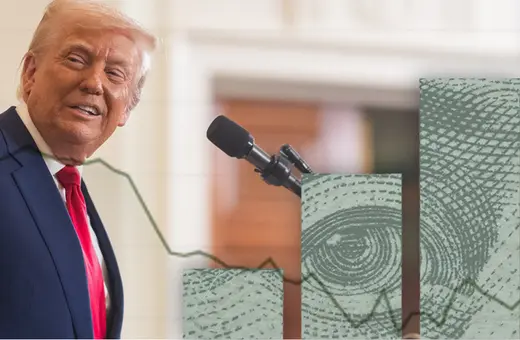Prices are rising. Money is worth less than it did a month ago, and a lot less than it did a year ago. Central banks, who have the ability to reverse inflation by raising interest rates, have been slow to react. They worry that higher interest rates can trigger a recession. But the effects of inflation are a lot more destructive than those of a recession, argues Eammon Butler.
Our financial authorities seem to think that inflation is nothing to worry about, and is far better than falling economic growth and recession. They are wrong. Inflation is the most universally destructive force known to economics.
 SUGGESTED READING
Recession is the threat, not inflation
By David Blanchflower
Since the financial crisis, the Bank of England has seemed desperate to prevent even a short economic contraction. It slashed interest rates, holding them at ‘emergency’ levels for over a decade. With prices rising, real interest rates became negative, and still are. At the same time it flooded us with ‘quantitative easing’ Monopoly money. The hope was that the ultra-cheap borrowing would induce entrepreneurs to start and grow businesses, while ultra-abundant cash would induce customers to buy their stuff. Up to a point, that worked: over the last few years, the UK’s economic growth has still exceeded its European neighbours (despite Brexit, as they say). But it is fantasyland growth.
SUGGESTED READING
Recession is the threat, not inflation
By David Blanchflower
Since the financial crisis, the Bank of England has seemed desperate to prevent even a short economic contraction. It slashed interest rates, holding them at ‘emergency’ levels for over a decade. With prices rising, real interest rates became negative, and still are. At the same time it flooded us with ‘quantitative easing’ Monopoly money. The hope was that the ultra-cheap borrowing would induce entrepreneurs to start and grow businesses, while ultra-abundant cash would induce customers to buy their stuff. Up to a point, that worked: over the last few years, the UK’s economic growth has still exceeded its European neighbours (despite Brexit, as they say). But it is fantasyland growth.
___
We all want to forget lockdown and spend, spend, spend and the Bank has semi-wittingly given us the cash to do it.
___
All central bankers love to dole out money and credit, and bask in the economic boost it brings. But they are always late in reining in — dashing away the punchbowl before the party gets out of control, as one central banker put it. And, true, it can be hard to spot when the party has turned. For instance, the Bank did not expect consumer demand to bounce back so strongly after the pandemic. We all want to forget lockdown and spend, spend, spend and the Bank has semi-wittingly given us the cash to do it. That’s driving up prices — further compounded by the fuel and food shortages caused by Covid-fractured supply chains and the Ukraine War. And through-the-roof food and fuel prices affect every part of the economy. The Bank has had to double its inflation forecast, though still hopes that the inflation will top 11% and will be only temporary.
Yet if the Bank continues to deny reality, inflation will be high and prolonged. In the US, the Federal Reserve Bank realised it had to cool things and upped interest rates by 0.75pc. A day later the Bank of England bottled out, with a rise of only 0.25%. It’s a sign that they are not going to fix the problem, and it undermines trust in the UK economy. That is why smart money has moved to the US, boosting the dollar and depressing the pound — incidentally making our imports of food, fuel and all the rest even costlier.
Everybody knows the misery of recession, but why should we fear inflation even more?
For a start, fantasy money produces fantasy finance. In the early 1970s, I paid 17% (!) interest on my student overdraft. My response was to borrow as much as I could (!) since inflation was running at 23%. The bank was paying me to take its money! That is because, when prices rise rapidly and unpredictably, businesses just can’t keep up. Inevitably they make bad business decisions, and bad investment decisions too, that waste money, effort and time, leaving us all worse off.
___





















Join the conversation